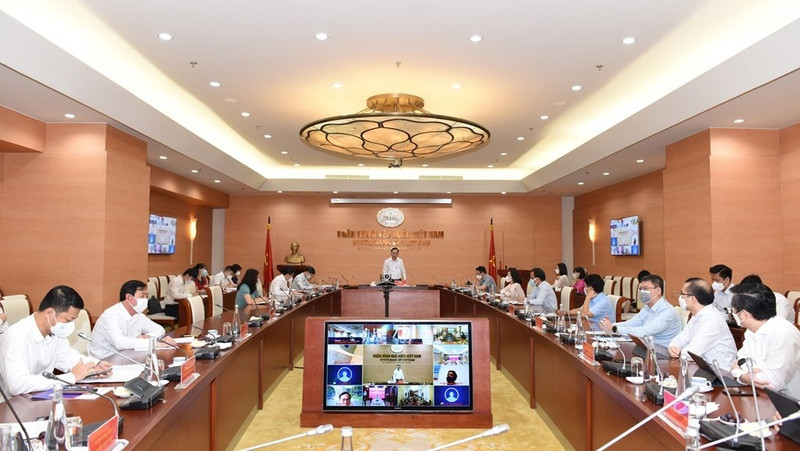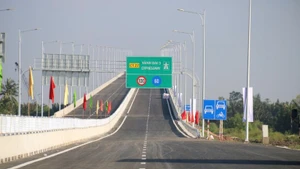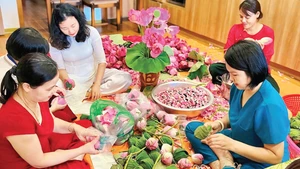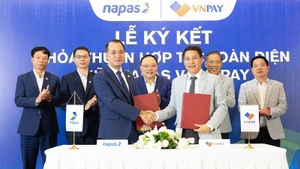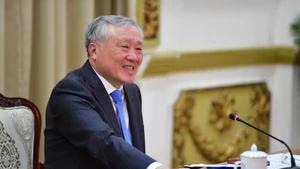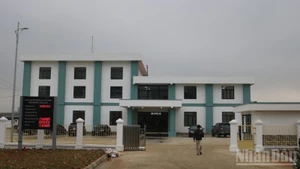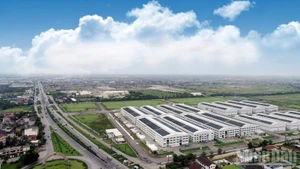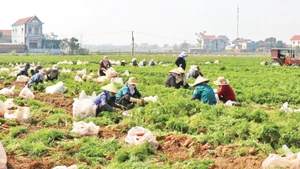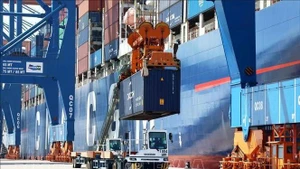According to SBV, the outstanding loans of the rice industry reached VND 144.65 trillion by the end of July 2021, an increase of 11.33% compared to the end of 2020. In the Mekong Delta specifically, the outstanding loans of the rice industry reached VND 74.13 trillion, up 15.45% and accounting for 51.25% of the country’ outstanding loans of rice industry.
From the beginning of 2021 until now, credit institutions in the Mekong Delta have granted credit lines worth about VND 56 trillion to businesses and traders that purchase and temporarily store rice. They disbursed with total accumulated sales of VND93 trillion to buy nearly 7.3 million tonnes of rice. Outstanding debt for purchase and consumption by the end of August 2021 is estimated at VND 51.5 trillion, up 22% compared to 2020 and accounting for 92% of the granted limit.
As a result of many provinces applying social distancing measure under Directive 16/CT-TTg of the Prime Minister, rice enterprises said that they are facing many difficulties in harvesting, circulating, producing, processing and exporting rice.
Based on the reports of the provinces in the Mekong Delta, SBV said that there are currently no recommendations related to credit capital, but only recommendations related to the circulation of goods and control in the social distancing period.
Rice is the main production industry in Vietnam’s agricultural sector in general and in the Mekong Delta in particular. Therefore, the banking industry is always interested in credit investment in this field. Accordingly, the growth rate of outstanding loans of the rice industry in the 2016-2020 period is always higher than the growth rate of credit in the agricultural and rural sectors.
SBV Deputy Governor Dao Minh Tu said that in the coming time, the banking industry will continue to focus capital sources to promptly meet the capital needs of traders, investors, rice processors and rice producers, with reasonable terms and interest rates as prescribed.
At the same time, the banking industry also will expand and increase credit limits for businesses to ensure enough capital to purchase and temporarily store rice for farmers in the summer-autumn crop and the coming autumn-winter crop, thus contributing to stabilising rice prices and ensuring profits for rice growers.
According to the deputy governor, the banking sector is also strictly implementing regulations on maximum short-term lending interest rate in VND for agriculture and rural areas, including for the rice industry.
In addition, the banking industry will reduce all unnecessary operational costs to reduce lending interest rates; and implement the agreed commitment to reduce lending interest rates by up to 1% per year for the last months of the year as registered with the Vietnam Banks Association under the direction of the SBV.
The Deputy Governor also said that the banking sector would flexibly apply loan guarantees and consider unsecured loans on the basis of cash flow management. At the same time, the banking sector will continue to improve lending processes and procedures, shorten the review time, and diversify credit products to facilitate customers in accessing credit capital.
